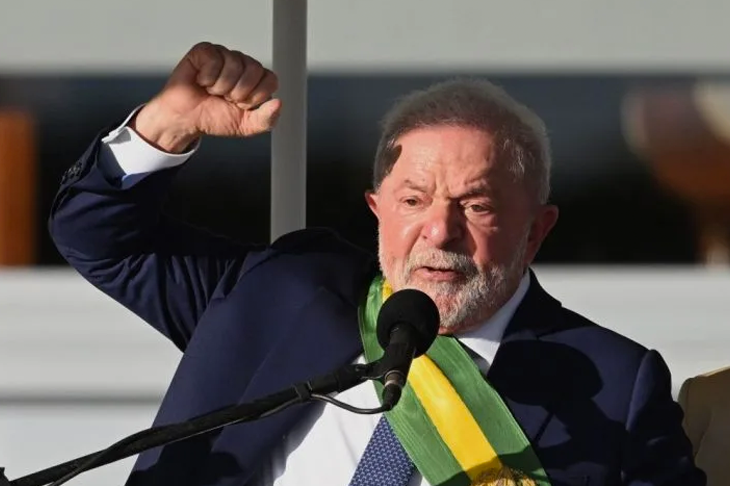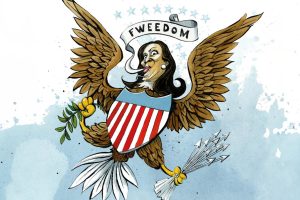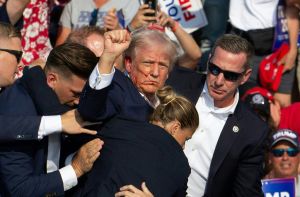A week is a long time in politics. Just ask Brazilian president Luiz Inácio Lula da Silva.
On January 1 this year he was greeted by adoring crowds at Brasilia’s presidential palace after being sworn in for a four-year term. Seven days later that same building had been overrun by far-right insurrectionists intent on overthrowing him. The incredible scenes in Brasilia were almost a carbon copy of the Trump insurrection of January 6, 2021, bar a few key details.
First, the North America mob wanted to prevent Joe Biden taking power. In Brazil, Lula was already in office, having replaced Jair Bolsonaro after winning a narrow election victory in October.
Second, hundreds of those who marched on the Brazilian capital were arrested. Lula has vowed to use the full force of the law to bring them and their financial backers to justice.
And most importantly, the Brazilian insurrection was multi-pronged and more serious than the DC version. Brazil’s fanatics did not just attack one branch of government, but all three. The Congress, the presidential palace and the Supreme Court buildings were all targets.
In each of the three, computers and televisions were smashed and stolen, furniture was destroyed, windows were smashed. Works of art were ripped from the walls and slashed or defaced.
Sunday’s horror show was a rude awakening for Lula, as if he needed one. The seventy-seven-year-old former union leader knew Bolsonarismo was firmly ensconced in the Brazilian politic and commentators have been warning for months of an attack on the seats of power. But the speed and breadth of the assault was still shocking and brought home just how difficult it will be to unite a divided nation.
In a perverse way, though, it also offers the leftist leader a golden opportunity. When he won election in October, Brazil was split down the middle. Lula took 50.9 percent of the valid votes, signaling that half the nation either sympathized with the far-right candidate or was prepared to overlook his sexism, misogyny, racism and vulgarity rather than forgive Lula and the Workers’ Party for their past misdemeanors.
The immediate reaction to Sunday’s insurrection suggest that opinions might be shifting. Social media monitoring by the Quaest polling firm showed that 90 percent of mentions condemned the vandalism, with most people calling it either “sad,” “scary” or “disgusting.” People who just a few months ago would never have voted for Lula may now ask themselves, do I stick with the lunatic or go with the legislator?
A fair chunk will surely decide that Sunday was an outrage too far. Before the cleaners had even started sweeping up the broken glass, Lula had formed a democratic alliance with congressional and judicial leaders who were equally shocked by Sunday’s events. Compared to Bolsonaro and the lunatic insurrectionists, Lula suddenly looks like a safe pair of hands.
“If he can take advantage of this opportunity, Lula could broaden his arc of alliances and corner radical Bolsonarismo,” said Thomas Traumann, a former minister in the Workers’ Party government. “Right-wing and center-right groups that reject Lula but are democrats may find themselves with a more moderate option.”
If he strikes quickly, Lula could even transform the outrage into concrete gains. “This gives Lula the political legitimacy to take measures against the most radical Bolsonarismo, such as expanding public social spending and punishing illegal gold miners and deforesters in the Amazon,” Traumann said in a column for El Pais on Monday. “The protests in Brasilia tried to hit Lula’s governability, but in practice they hit Bolsonaro’s credibility.”
One of the obvious and challenging reforms is that of Brazil’s militarized police bodies. Police were conspicuous by their absence on Sunday, with videos posted online showing some officers taking selfies with the insurrectionists or standing by drinking coconut water while the mobs went to work.
Lula called police inaction a result of either “incompetence, bad faith or malice” and immediately put federal forces in charge of the capital’s policing. The governor of Brasilia and its police chief were both stripped of their commands for giving protesters too much leeway.
Just over a month previously, another pro-Bolsonaro police chief, the head of the Federal Highway Police, was fired and charged with trying to influence the election by stopping Lula voters from getting to the polls.
Those sackings reveal how, from the highest echelons down, right-wing figures influence law enforcement bodies. Further down the ranks, more than half the members of the military police engaged with Bolsonaro groups online. The number of those interacting with these groups has grown significantly since he took office in 2019, according to a study released last year by the Brazilian Forum on Public Safety.
None of this will be easy but the far-right’s depravity means it has all of a sudden become possible. Lula will need more than a week to win the skeptics over. But time is now on his side.
This article was originally published on The Spectator’s UK website.





















